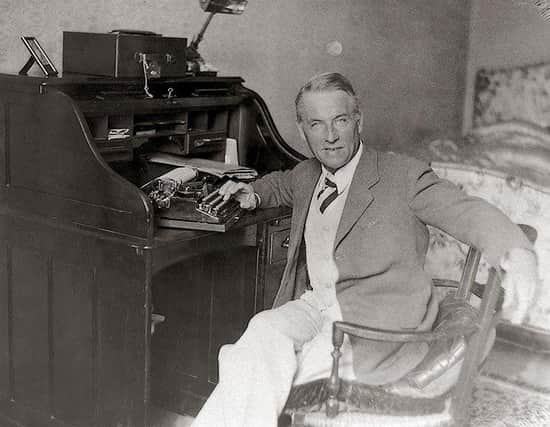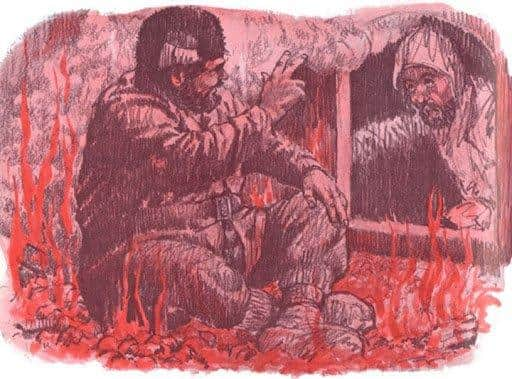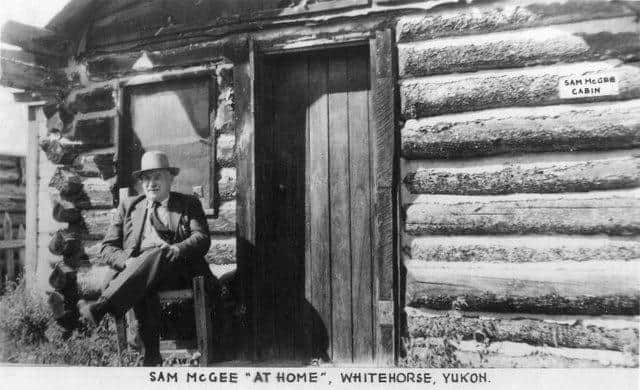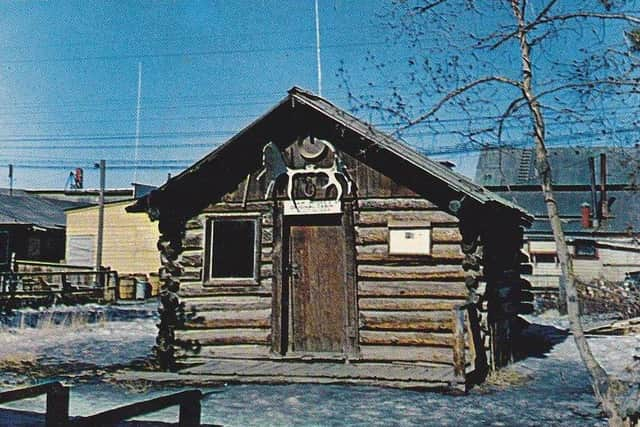Sonof Ulster emigrants remembered forever in epic Yukon gold-rush poem


But the queerest they ever did see
Was that night on the marge of Lake Lebarge
I cremated Sam McGee.”


Many of you have heard Robert W. Service’s ballad, The Cremation of Sam McGee, set in Canada’s Yukon Territory during the time of the great Klondike gold rush of 1897-1901.
(You’ll probably have heard one of his other well-known poems as well - The Shooting of Dan McGrew – which has more than occasionally been mentioned on this page.)
Advertisement
Hide AdAdvertisement
Hide AdLike McGrew, The Cremation of Sam McGee used to be recited regularly at church socials and bring-and-buy sales and suchlike all over Northern Ireland.
Roamer wasn’t aware of an important Irish link with the lines until a note arrived this week from regular Canadian reader, Mitchell Smyth, originally from Ballycastle, a Toronto travel writer who has visited the Klondike several times and, he says, has stood “on the marge (shore) of Lake Lebarge”, as the narrator of the poem writes.


The poem tells how Sam McGee from Tennessee, “where the cotton blooms and blows,” prospecting in the frozen wastes of the Klondike, hated the cold so much that he made his fellow-prospector promise to cremate him when he dies, so that he wouldn’t have a sub-zero grave. But there’s a twist in the tale.
First, the Irish connection. In the early 1860s, Samuel McGee and his wife emigrated from County Tyrone and took up residence in Lindsay, a small town north of Toronto.
Advertisement
Hide AdAdvertisement
Hide AdIn 1867 Mrs McGee gave birth to a son, whom the couple named after his father. This Sam McGee would grow up and journey to the Yukon during the gold rush.
He worked in the diggings, then bought a share in the War Eagle mine, making him a rich man as it produced $2 million worth of gold, silver and copper.


He put his money in the Canadian Bank of Commerce in Whitehorse, the territorial capital, dealing with a young teller called Robert W. Service, who spent his spare time writing gold-rush ballads.
That chance encounter would catapult young Sam into history as the hero of one of the truly great Klondike ballads - The Cremation of Sam McGee - famous enough to be commemorated on a 1976 Canadian postage stamp!
Here’s how it happened.
Advertisement
Hide AdAdvertisement
Hide AdOne day in 1906 Service was talking to a local doctor who said: “You write a bit, I hear. Let me tell you a story.”
The doctor told him how he had been called out that winter after the death of an old gold prospector who lived in a cabin on the shore of Lake Laberge, just north of Whitehorse.
Because of the frozen ground there was no chance of a burial till the spring, so the doctor cremated the corpse in the firebox (furnace) of a steamer frozen in the lake ice.
Service went back to his lodgings and scribbled 15 verses. He needed a name to rhyme with Tennessee, so he plucked it from his bank customer: “Now Sam McGee was from Tennessee”!
Advertisement
Hide AdAdvertisement
Hide AdTo rhyme with “marge” he changed the name of Lake Laberge to Lake Lebarge.
The Cremation of Sam McGee and The Shooting of Dan McGrew became Service’s most famous ballads, although he wrote many others.
Mitchell Smyth has visited the area where the cremation took place, and stood on the “marge” of the lake where he imagined the unnamed storyteller finding, on the long dogsled ride from Dawson City to Whitehorse, that his pal McGee has died.
With his dying breath Sam McGee had made him promise: “You’ll cremate my last remains.’’ Farther on they come to a riverboat jammed in the ice.
Advertisement
Hide AdAdvertisement
Hide Ad“And I looked at it and I thought a bit And I looked at my frozen chum. Then ‘Here!’ said I, with a sudden cry
‘Is my cre-ma-tor-eum.’”
Almost everyone knows the twist in the tale, how the heat from the furnace only serves to revive McGee.
When his chum opens the firebox door he sees Sam sitting up.
He says: “Since I left Plumtree, down in Tennessee, It’s the first time I’ve been warm.” (Plumtree is actually in North Carolina, a few miles from the Tennessee state line).
Advertisement
Hide AdAdvertisement
Hide AdArchived correspondence shows that Sam McGee gave Robert Service permission to use his name.
From the time the poem was first published in 1908 until he died in Beiseker, Alberta, in 1940 (he left the Yukon in 1909) hardly a day passed, McGee admitted, without somebody quipping, “Hot enough for you, eh?”
He took it all in his stride, though he must have been nonplussed when, on returning to the Yukon in the 1920s, he found tourist gift shops selling little urns of ‘Sam McGee’s ashes.’
There never would be ashes - Sam McGee was interred in a graveyard in Beiseker.
Advertisement
Hide AdAdvertisement
Hide Ad“And there sat Sam, looking cool and calm, in the heart of the furnace roar;
And he wore a smile you could see a mile, and he said: ‘Please close that door. It’s fine in here, but I greatly fear you’ll let in the cold and storm - Since I left Plumtree, down in Tennessee, it’s the first time I’ve been warm.’
A message from the Editor:
Thank you for reading this story on our website. While I have your attention, I also have an important request to make of you.
In order for us to continue to provide high quality and trusted local news on this free-to-read site, I am asking you to also please purchase a copy of our newspaper whenever you are able to do so.
Advertisement
Hide AdAdvertisement
Hide AdOur journalists are highly trained and our content is independently regulated by IPSO to some of the most rigorous standards in the world. But being your eyes and ears comes at a price. So we need your support more than ever to buy our newspapers during this crisis.
With the coronavirus lockdown having a major impact on many of our local valued advertisers - and consequently the advertising that we receive - we are more reliant than ever on you helping us to provide you with news and information by buying a copy of our newspaper when you can safely.
You can also enjoy unlimited access to the best news from across Northern Ireland and the UK by subscribing to newsletter.co.uk
With a digital subscription, you can read more than five articles, see fewer ads, enjoy faster load times, and get access to exclusive newsletters and content. Visit https://www.newsletter.co.uk/subscriptions now to sign up.
Thank you